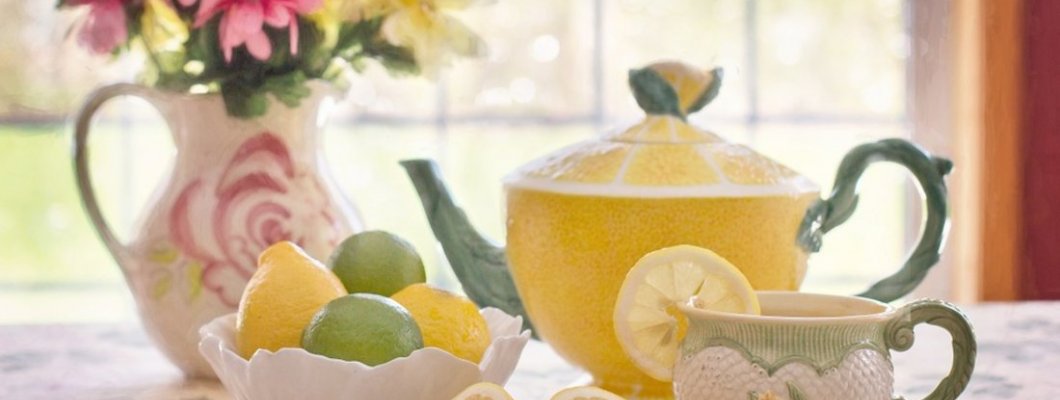Drinking tea during pregnancy

Every expecting mother-to-be should become more aware of what she eats and drinks during pregnancy. Some foods and beverages may be potentially dangerous to the unborn baby.
Table of content
- Tea during pregnancy
- Tea for mothers-to-be
- Best tea during pregnancy
- Mint tea in pregnancy
- Green tea during pregnancy
- Black tea during pregnancy
- Ginger tea during pregnancy
- Herb teas during pregnancy
- Red raspberry leaf tea
- Alchemilla
- Flaxseed tea
Tea during pregnancy
Tea is one of the most discussed beverages when it comes to safety during pregnancy. Drinking tea brings many benefits. It boosts the immune system, protects your heart and antioxidants from tea can protect you against cancer. Tea is a gift from Mother Nature. But! When you are expecting, you must be extra careful. Not all herbs are safe, and some are even dangerous to your unborn baby and therefore should be avoided. Furthermore, even not all fruit teas are safe. To find out more about tea during pregnancy, keep on reading.
Tea for mothers-to-be
Are you a tea lover but not sure whether your favourite drink is safe for your baby? There is a wide range of exclusive tea blends for pregnant women to choose from, whether you are a fan of herb teas, fruit blends or combinations of both. These blends are always the safest choice. Containing everything a pregnant woman needs, they can even ease your morning sickness, calm down your anxiety, help with bloating and headaches. You can enjoy a comforting cup of tea with benefits you will appreciate. Isn't it wonderful?
Best tea during pregnancy
Do you want to enjoy a comforting cup of tea? You can choose from unique blends of pregnancy teas or fruit teas (read labels carefully as not all fruit teas are decaf). You can even drink caffeinated black or green tea, in moderation. The amount of caffeine should not exceed 150-200 mg per day e.g. two cups of coffee or two to three cups of tea, per day. You can even drink ginger tea as well but in limited amounts. Overall, as with anything else in pregnancy, it's best to practice moderation.
Mint tea in pregnancy
Mint is a popular and refreshing herb. Although mint tastes lovely, helps with headaches, and it can ease morning sickness, pregnant women must be careful. You should avoid mint at all costs if you have experienced a miscarriage in the past or you are diagnosed with risk pregnancy. You better choose from a variety of pregnancy-safe herbs with similar benefits. Mint tea is best avoided until after you deliver and finish breastfeeding because it negatively affects the production of breastmilk.
Green tea during pregnancy
Green tea is famous for its healing benefits. It is an excellent antioxidant. Green tea should not be avoided entirely during pregnancy, only consumed with caution because it contains caffeine. One cup of green tea a day is okay. It will not harm you or your unborn baby; you both can thrive from its enormous benefits.
Black tea during pregnancy
Proceed with caution – the same applies to black tea as with the aforementioned green tea. Black tea is naturally caffeinated, so stick with one cup a day.
Warning: If you are pregnant and drink coffee, green and black tea should be avoided, because of caffeine. If you want to have a cup of tea, drink it instead of coffee. Daily intake of caffeine should not exceed excess 150-200 mg. Read more about the caffeine limit in the article Coffee and pregnancy.
Ginger tea during pregnancy
Ginger tea is famous for its healing properties – it boosts the immune system; it works as prevention against cold and flu. Ginger, in general, helps to ease morning sickness (ginger ale is highly recommended, for example).
Asian cuisine uses ginger in most of their recipes, but here, in Europe, we use it mostly in the form of tea. Are you wondering whether you may drink this spicy beverage when you are expecting? Yes, you may, but you have to use caution– 1 gram of dried ginger (in tea bags) or 4 grams of fresh ginger a day. Do not exceed the limit. Extreme amounts of ginger during pregnancy can severely endanger your unborn baby, even lead to miscarriage. If you want to consume ginger during pregnancy, consult it with your gynecologist.
Herb teas during pregnancy
Herbs are natural remedies so look at them the same way you would look at pharmaceutical treatments – not all are suitable in pregnancy or during breastfeeding. Some herbs are okay it the beginning of pregnancy but should be avoided later. Some, on the other hand, are forbidden until the end of the pregnancy as they can help to induce labour. If you feel insecure about these special herbs, you should seek help, do not put your baby at risk. Doctors or pharmacologists are here to help you. Plus, you can always choose from a wide range of pregnancy teas, which are safe for the whole period of pregnancy and therefore can be consumed without further consulting.
Red raspberry leaf tea
Tea from raspberry leaves is well-known among expecting women. However, it should be consumed not until the last weeks of pregnancy as it tones uterine muscles. Red raspberry leaf tea promotes more effective contractions during labour. Wait until you are 34 weeks into pregnancy then start drinking one cup of red raspberry leaf tea a day.
Alchemilla
Alchemilla is a fantastic herb for all women, whether pregnant or not. Many women use Alchemilla as a natural remedy for irregular menstrual cycle, painful periods, aches and cramps. Alchemilla is perfect for expecting moms-to-be as it can alleviate their morning sickness, calm down the anxiety; it soothes headaches or prevents insomnia. Drink one or two cups a day for two weeks straight then stop drinking it for several days before continuing with another two weeks-round, repeat as needed.
Flaxseed tea
Flax is a multifunctional gift from Mother Nature. It makes terrific material with great thermoregulation ability commonly used in baby-wraps and baby-carriers. Flaxseeds should be part of your everyday diet. Eat one tablespoon of flaxseeds per day. They must be grounded; otherwise, they will only travel through your digestive system with no effect. Grounded flaxseeds are good for your intestines, they help to maintain healthy bowel movements, and they soften the stool. You can buy them anywhere at grocery's, grind them in the mechanical or manual grinder and store in an airtight container. How about flaxseeds during pregnancy? They can help to ease the labour so consume them not until the last two months of pregnancy. For safety’s sake.
Myslíte, že by to mali vedieť aj ostatní?
Share it :)
21.3.2025
White Sneakers: A Must-Have Staple for Your Spring Outfit

12.3.2025
Product of the Month: Barebarics Fusion – Streetwear Design You Won’t Want to Take Off

12.3.2025
Product of the Month: Barebarics Fusion – Streetwear Design You Won’t Want to Take Off






























 Be Lenka
Be Lenka




